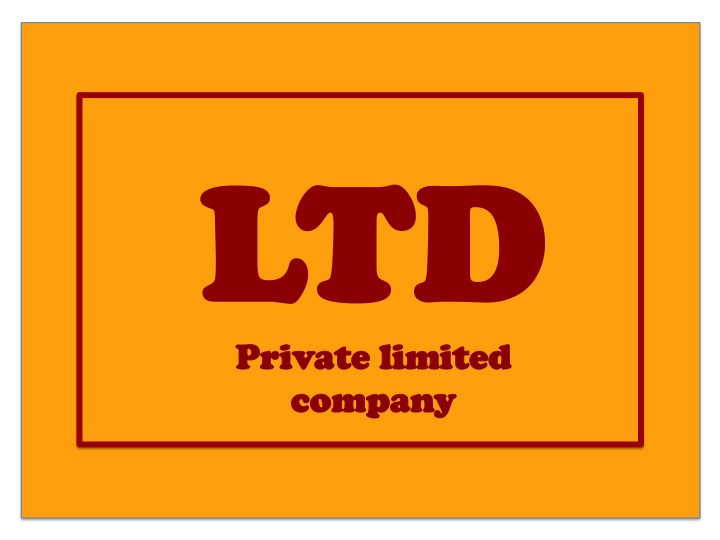Private Limited Company by Shares in the United Kingdom
A Private Limited Company by Shares, often referred to as a Ltd company, is a common business structure in the United Kingdom. Governed by the laws of England and Wales, this type of company offers various advantages to its shareholders while imposing certain legal obligations and responsibilities.
Key Features
Limited Liability
Shareholders of a Private Limited Company enjoy limited liability. This means that their personal assets are separate from the company’s finances, protecting them from personal responsibility for the company’s debts.
Shares and Shareholders
The ownership of the company is divided into shares, and individuals or entities holding these shares are known as shareholders. The company’s capital is raised by issuing shares, and shareholders are entitled to a portion of the company’s profits in proportion to their shareholding.
Number of Shareholders
A Private Limited Company must have at least one shareholder, and the maximum number of shareholders is usually limited to 50. This restriction on the number of shareholders contributes to the “private” nature of the company.
Formation and Registration
To establish a Private Limited Company by Shares, the company must be registered with Companies House, the UK’s official register of companies. The registration process involves providing information about the company’s directors, shareholders, and registered office address.
Directors
The company is managed by its directors, who are appointed by the shareholders. Directors have specific legal duties, including acting in the best interests of the company, promoting its success, and ensuring compliance with relevant laws and regulations.
Registered Office
The company must have a registered office address in England, Wales, or Scotland, where official documents and legal notices can be served. This address is publicly accessible on the Companies House register.
Annual Filings
Private Limited Companies are required to file annual financial statements, an annual confirmation statement, and other relevant documents with Companies House. This ensures transparency and compliance with statutory obligations.
Decision-Making
Important decisions are typically made by shareholders through voting. Each share generally entitles the shareholder to one vote, although the company’s articles of association may specify different arrangements.
Distribution of Profits
Profits can be distributed to shareholders in the form of dividends, subject to the company’s financial position and legal requirements. Dividends are typically declared by the board of directors.
Exit Strategies
Shareholders may sell or transfer their shares, and the company can be dissolved or wound up according to the legal procedures outlined in the Companies Act.
What is a Private Limited Company by Shares?
A Private Limited Company by Shares, often known as a Ltd company, is a business structure where ownership is divided into shares. Shareholders enjoy limited liability, and the company’s operations are governed by the laws of England and Wales.
How many shareholders are required to form a Private Limited Company by Shares?
A Private Limited Company must have at least one shareholder. The maximum number of shareholders is generally capped at 50, contributing to the “private” nature of the company.
What is limited liability, and how does it apply to shareholders?
Limited liability means that the personal assets of shareholders are separate from the company’s finances. Shareholders are not personally responsible for the company’s debts beyond the value of their shareholdings.
How is a Private Limited Company by Shares registered in the UK?
To establish a Private Limited Company, the company must be registered with Companies House. The registration process involves providing information about directors, shareholders, the registered office address, and other essential details.
What are the responsibilities of directors in a Private Limited Company?
Directors are responsible for managing the company’s affairs, making decisions in its best interests, and ensuring compliance with laws. They have specific legal duties outlined in the Companies Act.
Can a Private Limited Company issue different classes of shares?
Yes, a Private Limited Company can issue various classes of shares with different rights, such as voting rights, dividend entitlements, and preference in asset distribution.
How are decisions made in a Private Limited Company by Shares?
Important decisions are often made through shareholder voting. Each share typically entitles the shareholder to one vote, although the company’s articles of association may specify different arrangements.
Are there annual filing requirements for Private Limited Companies?
Yes, Private Limited Companies must file annual financial statements, an annual confirmation statement, and other relevant documents with Companies House. These filings contribute to transparency and regulatory compliance.
Can shares be freely transferred in a Private Limited Company?
Shareholders may sell or transfer their shares, subject to any restrictions outlined in the company’s articles of association. Certain agreements or pre-emption rights might govern the transfer of shares.
What is the process for winding up or dissolving a Private Limited Company by Shares?
The company can be dissolved voluntarily or involuntarily. Voluntary dissolution involves a formal resolution by shareholders, while involuntary dissolution may occur through legal processes if the company fails to meet its obligations.
- Press Release – New Product Announcement - July 19, 2024
- Blog Advertising Agreement - July 18, 2024
- Free Prize Draw Terms and Conditions - July 17, 2024









